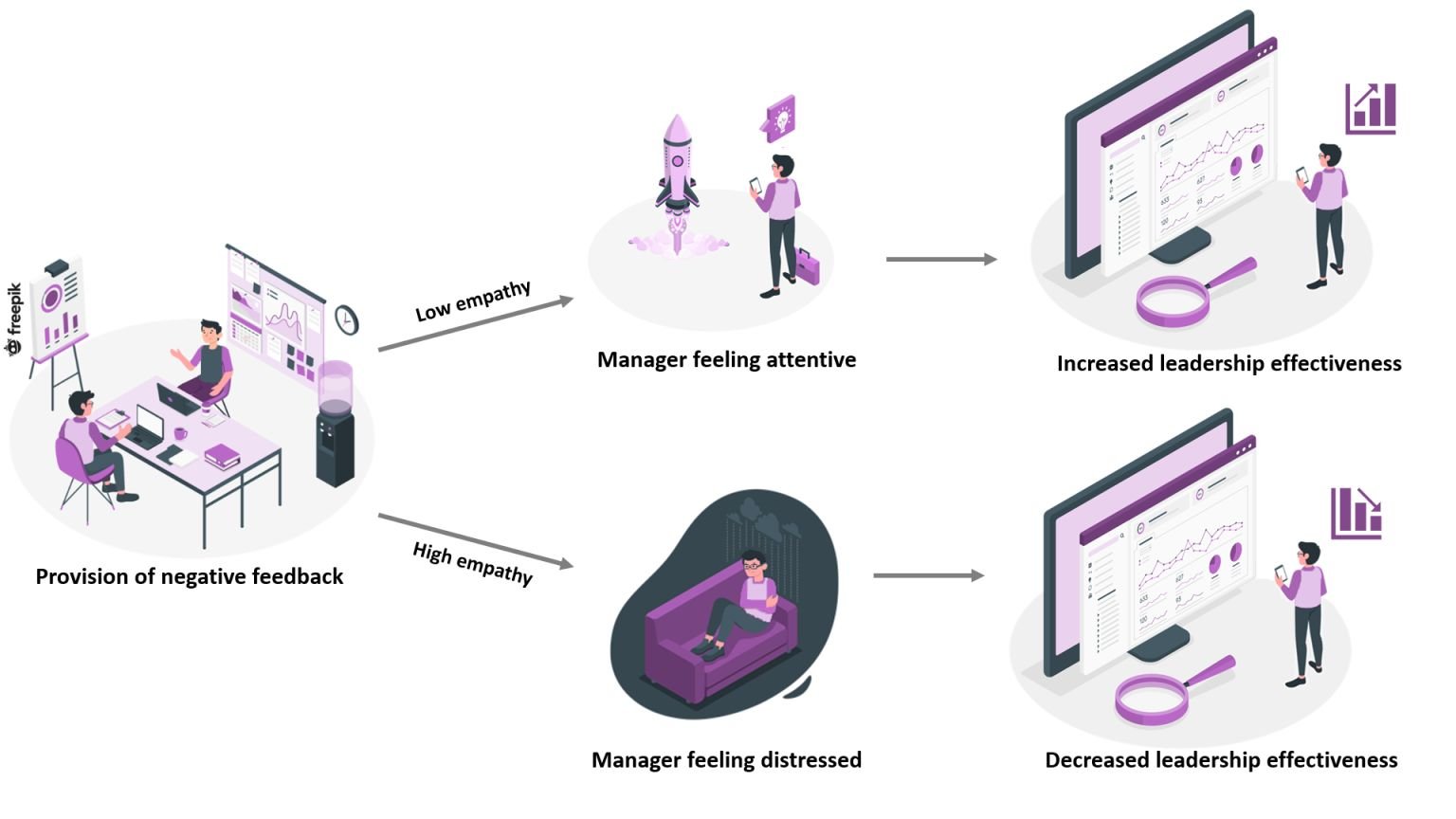Digest 30. Providing negative feedback: A double-edged sword for feedback providers
When addressing the difficulties associated with negative feedback, the focus is typically on the employees or, in general, the recipients of negative feedback: how such feedback affects them (see Digest 2 and Digest 20), and how managers can provide better negative feedback (see Digest 29). The effects of delivering negative feedback on those who provide it has been completely overlooked.
The provision of negative feedback, from the managers’ perspective, may have benefits and costs. The benefits comprise demonstrating competence, exercising power and control, and addressing a performance issue; the costs, on the other hand, involve damaging the relationship and hurting an employee’s feelings. Whether managers see negative feedback as beneficial or costly to them depends on their personal characteristics, especially how empathic they are.
How does empathy influence the reactions to providing negative feedback?
In addressing this question, Simon and her colleagues (2021), conducted multiple studies. First, they surveyed 53 managers in the U.S.A., twice a day for 10 consecutive workdays about their feedback provision and how they felt afterwards. Second, they conducted an experimental study with 221 managers who had to read a report by an imaginary employee and give a corrective performance feedback to him/her. Subsequently, the managers were told the employee’s emotional reaction to their feedback, which was controlled by the researchers. Half of the participants were told that their employee was emotionally disturbed by the feedback, and half were told that the employee stayed calm after receiving the feedback and accepted it. Finally, the managers had to work on some tasks to see how effectively they performed.
Complementing these two studies, a third one asked managers to describe an incident where they gave negative feedback to their employee (in real life) and then answer few questions and perform simple tasks. Based on these three studies, Simon and colleagues found that after providing negative feedback empathic managers feel less attentive (alert, engaged and concentrated) and more distressed (on edge, uneasy, or tense) which results in them becoming less effective in their leadership. In contrast, managers with lower empathy report feeling more attentive and less distressed, which resulted in them being more effective in their leadership. The reason is that empathy makes people feel close to their interlocutors and put themselves in the shoes of the feedback recipient, which ultimately affects your emotions and level of energy.
Organizational implications
To avoid negative effects of negative feedback on feedback providers, the following recommendations may help:
While the provision of negative feedback has benefits, especially for the recipients, organizations should be aware of its probable psychological costs on the providers that might impede leaders’ effectiveness.
Organizations should give leaders sufficient time to recover after providing negative feedback to ensure the process does not hinder their effectiveness in other responsibilities they have.
Organizations need to offer trainings to leaders on how to provide high-quality negative feedback and how to become more resistant towards the psychological costs such process has.
Organizations need to identify empathic leaders and encourage them to take part in recovery activities such as going for a walk and having lunch with colleagues, after the provision of negative feedback to boost their spirit.
Empathic leaders may be better off providing negative feedback later in the day, after they are done with their other tasks so that it does not affect their effectiveness during a working day: However, receiving negative feedback later in the day may have also a detrimental effect on the recipient and so the quality of the negative feedback is, once again, essential. Leaders with lower empathy may, on the opposite, be better off at providing negative feedback earlier in the day.
——
Reference: Simon, L. S., Rosen, C. C., Gajendran, R. S., Ozgen, S., & Corwin, E. S. (2021). Pain or gain? Understanding how trait empathy impacts leader effectiveness following the provision of negative feedback. Journal of Applied Psychology, advance online publication. https://doi.org/10.1037/apl0000882

